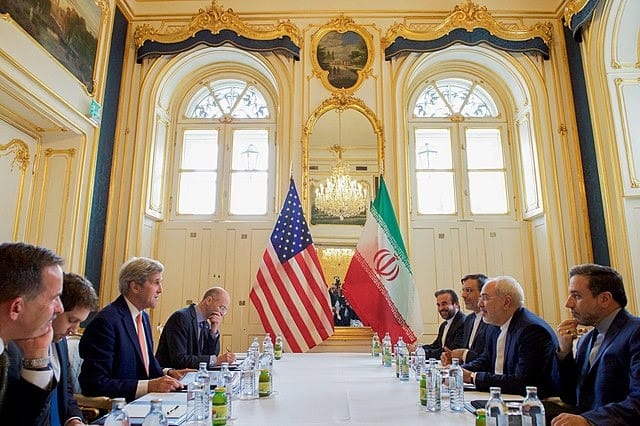The US and Iran have been locked in a shadow war since 1979 – characterised by mutual-suspicion, proxy conflicts and covert action. A straightforward re-run of the JCPOA of 2015 [the Joint Comprehensive Plan of Action, or “Iranian nuclear deal”] offering sanctions relief for limits on uranium enrichment but which fails to address the root causes of this conflict may not work this time around. “Companies wishing to deploy capital into Iran would be advised to show caution, even if a deal is signed,” said one senior European aviation executive with experience of Iran under the cloud of US sanctions.
“Iran is taking a leaf out of the Kremlin’s playbook; flatter Donald, dangle the carrot of billions of dollars, and write your social media posts with plenty of caps and derogatory nicknames for Joe Biden,” an Iranian with close knowledge of the talks told Field. In a similar vein, a recent op-ed in the Washington Post by Iranian Foreign Minister Abbas Araghchi explicitly set out the scale of the investment opportunity in Iran, impishly harking back to a pre-revolutionary age when Americans lived comfortable, well-paid lives in Tehran and around Iran.
Field’s contacts in DC reiterated this Administration’s priorities: “Whatever he says,” a lobbyist told Field, “Trump doesn’t want a US conflict with Iran. Incidentally, neither does Putin. The Iranians are keenly aware that a return of their oil and gas to global markets would drive down prices, something the White House favours.”
Yet despite all of this neat, apparent symmetry of interest, America’s desire for haste and Iran’s traditional negotiating smarts could work against the Islamic Republic. A DC lawyer told Field that “Donald Trump is famed both for impatience and a short attention span, if he feels that Iran is stalling, or dragging things out in the hope of getting further concessions, he might well walk away, wash his hands and leave it up to Israel.”
A London-based Middle East watcher told us that “Tel Aviv has been consistent on its views of US-Iranian rapprochement and has never been afraid to play the role of spoiler.” Tehran accused Israel of being behind the explosions at Iran’s port city of Bandar Abbas on 26 April which killed at least 70 people and injured over 1,200 according to open sources, an unsuccessful cyber-attack on 28 April and an explosion at a chemical factory in Esfahan on 29 April.
“There’s not one Iranian politician or decision maker who doesn’t fear Israeli efforts to spoil the deal,” said an Iranian close to the talks. And the Iranian regime needs a deal despite the potential domestic repercussions. Supreme Leader Khamenei knows that a nuclear deal that improves the economy could trigger street protests led by a frustrated young population who oppose anything that prolongs the life of the Islamic Republic. “Khamenei wishes he weren’t forced into a corner where he needs to negotiate with a Trump White House to prop up an ailing economy,” the Iranian source told Field “But he knows he has to.”
“The world is fundamentally different since the agreement of 2015,” said one former European diplomat familiar with the JCPOA and the current talks. “Iran has hedged its bets, signed long-term strategic agreements with Russia and China which cover weapons, energy and goods,” the source added. “Although Tehran wants a deal with the West to get sanctions relief and reintegrate its economy into the global system, it does have other options and allies – even if they aren’t quite as good.”
There’s also the regional dimension. “[Defence Minister] Khaled bin Salman’s recent visit to Tehran was a hugely symbolic play from Saudi Arabia to show that Riyadh is totally opposed to Israeli or US military action against Iran,” said a Saudi source based in Jeddah. Riyadh’s cautious engagement with Tehran reflects a broader shift to more active leadership to address long-standing geopolitical problems, closer and further away from home. “As President Trump heads to the region, he must surely have been told repeatedly that what Saudi Arabia wants really matters now”, a former State Department hand told us.
For more on this issue, projects related to Iran and the Gulf, sanctions or other geopolitical issues, please write to contact@fieldintel.co.


